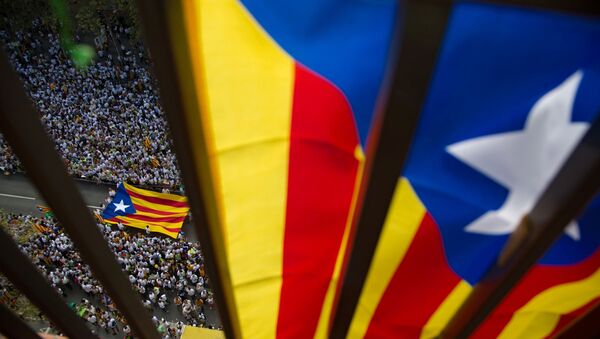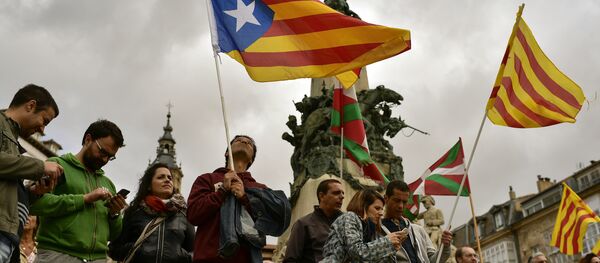MOSCOW (Sputnik) — Folch said that the European Union expressed its readiness to recognize the results of Catalonia's upcoming independence referendum to calm down the financial market, as the bloc is afraid of economic instability which might be caused by the region's splitting from Spain.
"The main thing for the EU, it is not to recognize the result of the vote, it is to keep calm the international economic market, because if Catalonia decided not to contribute at all, if, for example, we stay out of the EU, then Spain will collapse economically and the EU would suffer. That is why they try to maintain stability and calm down the economic market," Folch said.
He noted that the European Union was seeking economic stability since Catalonia was "a rich country" and one of the main contributors to Spain, and consequently, to the bloc.
#referèndumCAT #1OCT pic.twitter.com/z6pNK4h7Fi
— jordi salvia (@jordisalvia) 11 сентября 2017 г.
Folch stressed that Catalonia itself was protected from the economic impact of splitting with Spain by international and bilateral treaties, which it had signed as a Spanish region.
"Legally, when a country splits from another country, as a successor of the country, all international treaties must be respected by both parties. Of course, we would respect them," he said, adding that even though Catalonia might not immediately become an EU member state, in the end, the people and companies would change nothing but their nationality.
Catalonia has long sought independence from Spain, accusing Madrid of constraining its economic and cultural autonomy and of unfairly distributing resources in the country. Catalonia is the second most populous region in Spain and the main contributor to the Spanish economy, accounting for nearly one-fifth of the country’s GDP over the last decade, according to the data of the Organisation for Economic Co-operation and Development. In addition, the autonomous region accounts for 25 percent of all Spanish exports and 23 percent of all Spanish industry.





